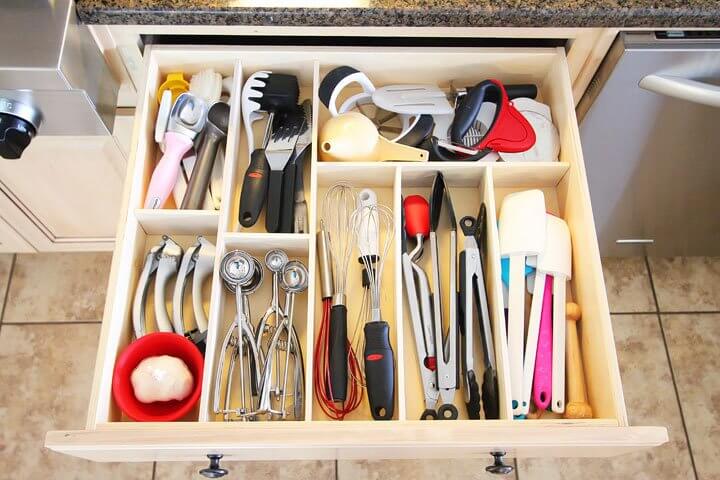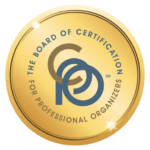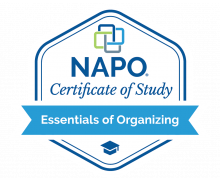| Whether you “live” in your kitchen, or mostly order take-out, the kitchen always seems to be crowded – by humans, pets and small kitchen gadgets and utensils. The start of a school year is a good time to organize your busiest of spaces. 1. Check for duplicates Do you really need that bullet blender, smoothie maker, industrial blender and food processor? Sometimes, just one of these items does the job. If you have too many pots, utensils or plates it might be time to cut back. The good news is that any completely unused and brand new pieces can make great gifts and/or have reasonable resale value. For even slightly used items donating to those in need is always in style. 2. The fridge counts, too Small items also include food. If you’ve had a jar of mayonnaise in the back of the fridge that’s been there since your pre-move in date, it might (definitely) be time to throw it away. This goes for anything that’s expired. Not only will this keep your kitchen smelling fresh, it’ll make room for food you actually eat, reducing waste in the future. Pro tip: store older items at the front, so you don’t forget about them! 3. Hack your utensil game Are you someone that has tons of utensils piled in a drawer? Save time looking for a fork or measuring spoon with these quick organization hacks: —Turn mason jars on their side in your utensil drawer and store similar items within each one. —Use a peg board to hang utensils —Buy a divided utensil tray that fits in your drawer 4. Label and store Go through the pantry and reduce space placing near empty boxes of food and ingredients into airtight containers and label them with a label maker or sharpie. This works incredibly well for half-eaten bags of cookies, grains, cereal etc., as you can store the food in a visible way without the bulkiness of its original container. |

Decluttering
Tidy Home, Tidy Mind: The Mental Benefits of Organization
A cluttered space often leads to a cluttered mind. When our surroundings are chaotic, it can be difficult to focus, relax, or even find motivation















